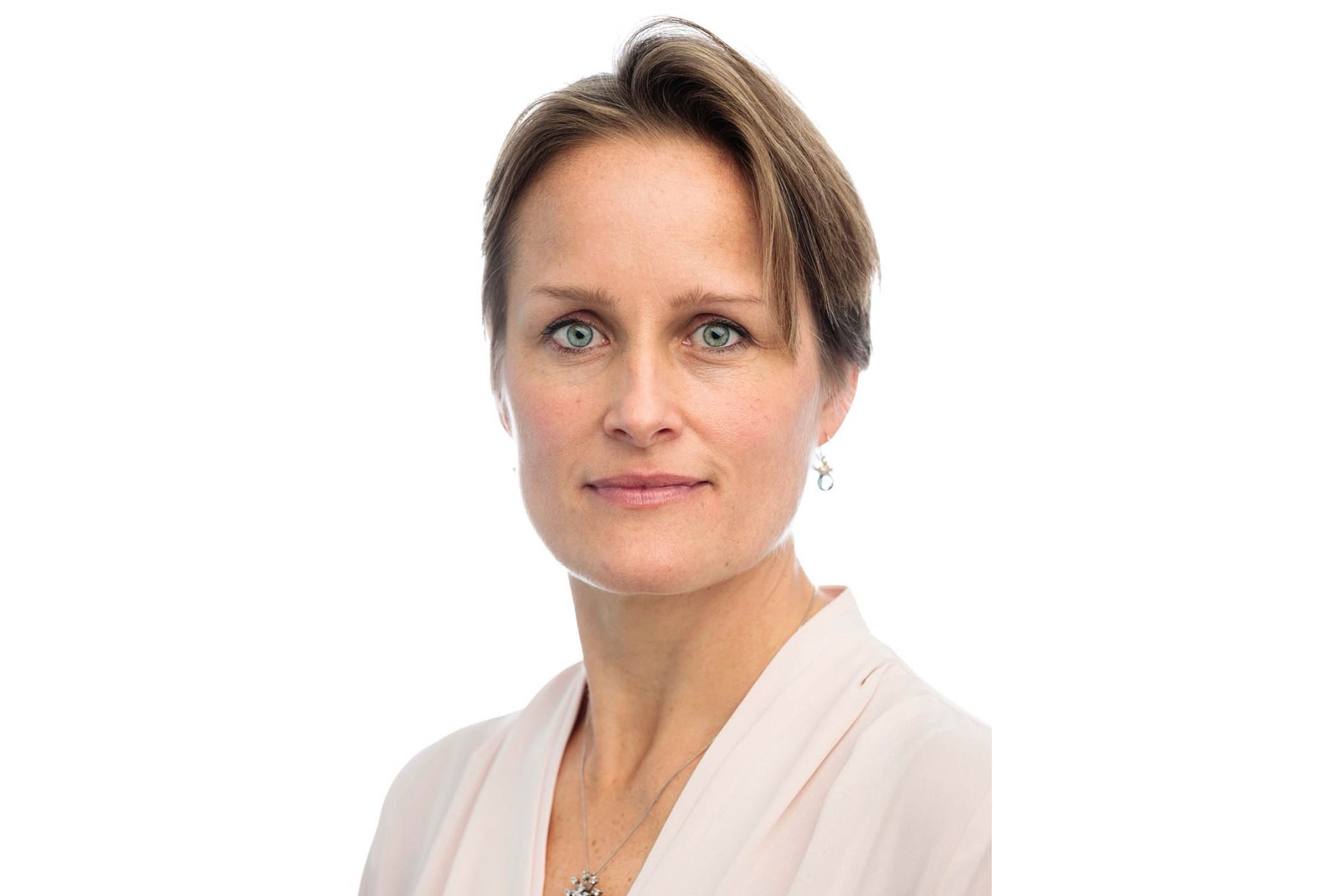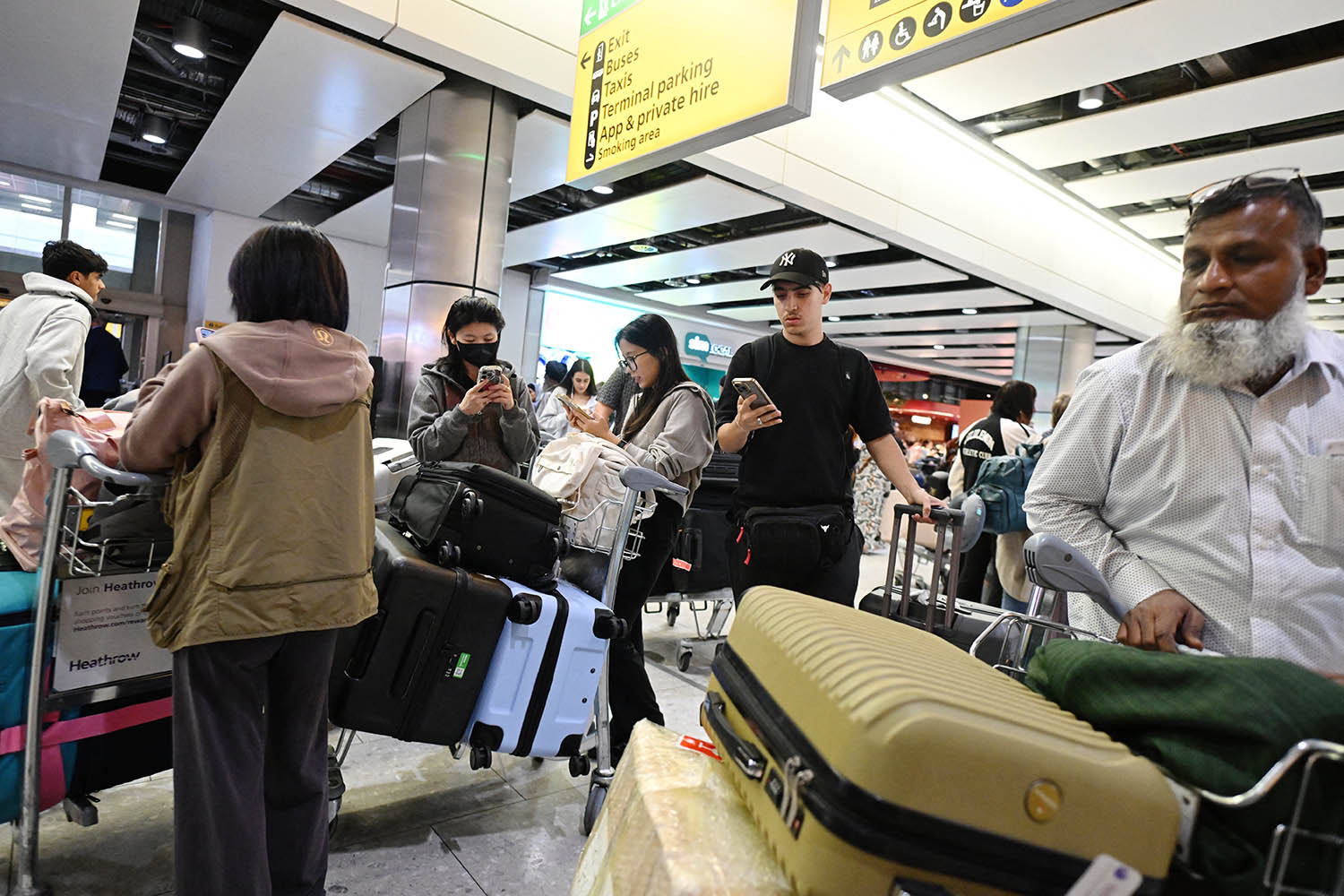
As Jackson Lamb returns to our screens this week, Blaise Metreweli is settling into her new office as C, the head of the secret service
It’s a long, long walk from Jackson Lamb to Blaise Metreweli. Longer than the road from a raddled ruin of a hasbeen spy catcher to the impeccable poise of a fitness fanatic spy chief, from a rat-infested Victorian fire trap in Liverpool Street to the gleaming postmodern block in Vauxhall Cross.
Yet, for all that, the fictional star of Slow Horses and the very real new chief of MI6 have some things in common. A fierce intelligence, a determination to protect their people, a competitive instinct to win. Both also have dual natures, of and yet not of the tribes they have made their own. Lamb is run down, cast out, cynical, yet a lifelong counter-intelligence loyalist. Metreweli is from British establishment central casting: Cheltenham Ladies’ College, Westminster School, Cambridge, rowing blue. She is also the daughter of a Ukrainian émigré, who fled the bloody battleground of the eastern front in the wake of the second world war.
As Jackson Lamb returns to our screens for a new outing this week, Blaise Metreweli is settling into her new office as C, the head of MI6. Of the two, it’s a fair bet that Metreweli faces the more difficult task.
Like all modern intelligence agencies MI6, the secret intelligence service, is being asked to win in an increasingly complex chess game, with little by the way of new resources to fund the work. It’s becoming harder to hide agents in the field, for example, as digital fingerprints tell governments more and more about people, and meta-data tracking allows spy catchers to put together addresses, phone numbers, other residents at nearby addresses, social media connections and a host of other clues to spot the spy. Even a hole in the digital web becomes a place to hunt someone hiding.

Blaise Metreweli
At the same time, foreign intelligence agencies are throwing resources at technologies that will make it harder for agents to work. Russia is introducing a compulsory new Amina application that will store all biometric, location tracking and message information for migrants from former Soviet republics who want to work in Moscow. While Russian authorities describe this as an experiment, over the next four years all these economic migrants will be tracked 24 hours a day in real time. History suggests this experiment will expand, rather than contract, as time goes on.
MI6 is trying to turn technology to its advantage too. In his retirement speech last week, Sir Richard Moore, Metreweli’s predecessor, pointed to the UK’s National Security Engineering Centre’s co-creation facility in Milton Keynes, where technical spies and private companies collaborate on solving the most difficult challenges in getting to other people’s secrets.
Sir Richard also cited the national security strategic investment fund, which MI6 backs to help companies invest in areas such as AI or quantum computing. In the same speech he unveiled a dark web portal called Silent Courier to attract recruits with technical skills or foreign intelligence to share. When Sir Richard was recruited, a tap on the shoulder at college or a cryptic listing in Private Eye were the doorways. Silent Courier is the 21st-century classified ad.
Away from the ever-evolving technical cat and mouse game, Metreweli is likely to be focused on two big areas. Understanding Russian plans and intentions for Ukraine and Nato, and the continued unravelling of the Middle East, including potential nuclear proliferation.
No one seriously believes that Vladimir Putin is deliberately trying to start an all-out war with Nato, but he is certainly pushing pawns and testing western unity. Calibrating his thinking will be critical to managing the brinkmanship in eastern Europe and understanding how to handle this diplomatic and military minefield. MI6, along with the listening centre GCHQ, will be critical to the UK’s understanding of this balance.
In the Middle East, the recent Israeli and American strikes against the Iranian nuclear and missile sites underline concern about the country’s nuclear capabilities. Just this week, Saudi Arabia and Pakistan announced a deep defence agreement. The Saudis are of course immensely rich, the Pakistanis are definitely not, but hold nuclear weapons and some design information. The axis of North Korea, China, Pakistan and now potentially Saudi Arabia will worry western governments. They want information.
Metreweli is well placed to tackle many of these problems. She was a field agent in the Middle East for many years, including dealing with nuclear issues. She has headed Q branch, dealing with modern technical challenges as both poacher and gamekeeper. Now she will have to add the skill of explaining to government the limitations of the art of the possible.
Sir Richard says that Metreweli intends to carry on and extend his break with tradition by being more open about the work of MI6. Her dual nature, as field agent and technical specialist, insider and outsider, make her a very interesting choice at this fork in the road.
Photograph by United Kingdom Foreign Office via AP



